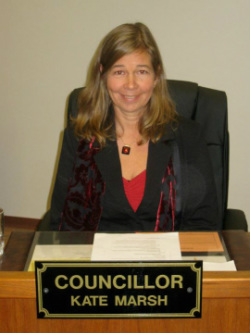The last two months have been filled with seemingly endless rounds of meetings and hours of reading and pondering. (No time to blog.) There is so much involved in helping to oversee the running of a municipality. I have been on a steep learning curve and in no way take the responsibility lightly.
The budget and taxes have been front and center. Council has been deliberating on the 5-Year Financial Plan and a Tax Rate Bylaw, both of which must be passed before May 15th.
Going into the budget deliberations, North Cowichan had a residential tax rate of $969 per average house -- about two-thirds of the $1,458 average among 50 comparable municipalities. (for example - Port Alberni, $ 1488; Powell River, $ 1412; Campbell River, $ 1294) Ours is an amazing number, considering the sheer geography of North Cowichan relative to municipalities with similar populations.
North Cowichan has done an exemplary job of stewarding our resources and bringing in other revenue to reduce the need for tax increases. For instance:
* I wrote last blog about the municipal forest and the money it has contributed (offsetting tax increases) since it was created.
* In the last year, North Cowichan staff have been successful in getting over $12 million dollars in grant monies from senior governments, sparing taxpayers much of the expense of the diking projects in the south end and the entire expense of replacing the Chemainus River bridge in the north. The bridge grant allowed the district to cut its borrowing for the municipal hall expansion in half as reserve money was freed up.
Last night (March 26) at a special public meeting -- with about a dozen members of the public in attendance -- Council unanimously passed a motion in the committee of the whole: "that Council direct staff to prepare the 2012 - 2016 Financial Plan Bylaw for consideration on April 18th, 2012." If passed, it creates a 3.85% increase, adding $36 on the average home ($11 per $ 100,000 of assessed value) to the municipal portion of the taxpayer's bill.
This amount doesn't include school taxes, parcel taxes (water and sewer), hospital or the CVRD.
North Cowichan collects these other taxes for the province, VIHA and the CVRD, which is why they show up on NC resident's tax bills; but we have no authority as a body to set those rates. (Though three North Cowichan Councillors sit on the CVRD, making up a minority of that board).
Finally, this budget supports an ongoing 13% capital transfer, basically a set-aside provision to fund future necessary capital projects with minimal borrowing.
That this group of diverse people with various ideologies and partisan affiliations voted unanimously for moving this proposed budget forward further confirms its merits to me.
I believe it is a budget that sets North Cowichan on a sustainable and responsible (to respond ably) course in providing the services that are important to our community's economic, social and environmental well-being.
A Challenge We Face:
One of the reasons North Cowichan has enjoyed a low tax rate (relative to comparable communities) for so long has been the distribution of our tax rates. It is out of balance, and puts us at significant risk if it remains unchanged.
We all know that Catalyst, our community's largest employer and largest single taxpayer (the Crofton mill pays 26% of our municipal revenue) has gone into bankruptcy protection. Their shares have become penny stocks and their long term survival is gravely threatened.
Council must decide how and when to shift some of the tax distribution from heavy industry (Class 4) in order to avoid the damage to our municipality should Catalyst fail.
Our CAO, who is a Certified Public Accountant trained in risk management, recommends a tax transfer that would cost the average residential taxpayer $300 a year and bring the municipal portion of taxes on the average home to $1,305.
The goals for the tax rate re-structure are to:
~ Establish a competitive Tax Rate Structure
~ Reduce reliance on Major Industry to minimize financial risk
~ Increase competitiveness of North Cowichan industries and businesses
~ Ensure reserve balances are sufficient to absorb any tax losses
~ Reduce reliance on debt to finance capital projects
Making the shift now, proactively, some argue, is by far the safer bet. I tend to lean in that direction. Relying on one taxpayer who is struggling to stay afloat for more than one-fourth of our municipal budget puts all our goals in jeopardy.
I'm committed to balancing the needs of today with future generations' rights to a healthy, resource-rich environment, and I'm committed to making every decision sustainable. Putting off needed improvements and services until later -- or making them now and putting them "on the tab" -- will only burden taxpayers down the road, making it harder for our children to make their lives here.
What are your thoughts?
Council will be deliberating on whether to make a shift, and how much, at a special public meeting on April 2nd at 6 pm at Municipal Hall. If you can't come out to the meeting and want your opinion heard, email: <[email protected]>

 RSS Feed
RSS Feed
